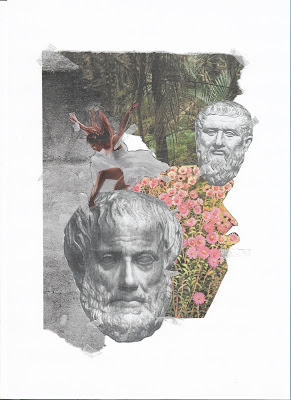These experiments also included imagery of relevant philosophers, most of whom wrote the books or had some form of inspiration/input into beliefs conveyed within the books, such as Plato, Aristotle, Boethius and the Greek God of love, Eros.
 Themes:
Themes:The Consolation of Philosophy
- free will and determinism.
puppet on strings could represent determinism, cogs/process of thinking to represent free will - the idea of making a decision freely. - the problem of evil.
how can an all-loving, all-powerful and all-knowing God allow evil to happen in the world?
attributes of God.

De Anima (On the Soul)
- the body/soul distinction.
- Plato - dualist (believed the body and soul were separate).
Aristotle - interdependent (need each other to function). - believed the mind is the connection between the body and soul.
the soul is the form of the body. - Analogy of the eye - if the eye were an animal, sight would have to be its soul. When the eye no longer sees then it is an eye in name only.
- flowers/animals - nature, different types of souls.

The Symposium
- the nature of love (Eros - Greek God of Love).
- gender roles/sex in society/sublimation of basic human instincts.
- Platonic love - same gender relationships.
humans originally created with four arms, legs and heads with two faces, condemned to spend life looking for their other half. - "he whom love touches not walks in darkness".


No comments:
Post a Comment